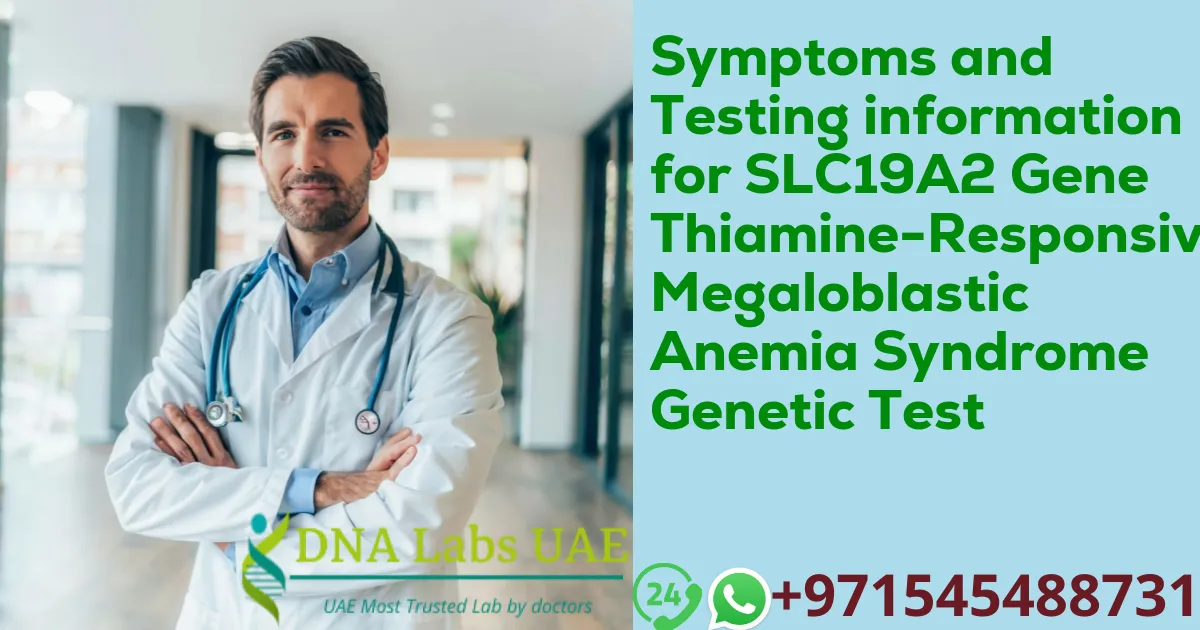Symptoms of SLC19A2 Gene Thiamine-Responsive Megaloblastic Anemia Syndrome Genetic Test
Thiamine-Responsive Megaloblastic Anemia Syndrome (TRMA), also known as Rogers Syndrome, is a rare autosomal recessive disorder caused by mutations in the SLC19A2 gene. This gene plays a crucial role in thiamine (vitamin B1) transport into cells, an essential process for cellular energy production and DNA synthesis. The syndrome is characterized by a triad of megaloblastic anemia, diabetes mellitus, and sensorineural deafness. However, symptoms can vary widely among affected individuals, making it imperative to understand the signs that could indicate the presence of TRMA.
One of the primary symptoms of TRMA is megaloblastic anemia, which manifests as weakness, fatigue, pallor, and shortness of breath. This type of anemia is characterized by the presence of abnormally large red blood cells in the bone marrow and peripheral blood, a result of impaired DNA synthesis due to inadequate thiamine transport.
Another hallmark of TRMA is the development of diabetes mellitus at an early age, often within the first decade of life. This occurs due to pancreatic beta-cell dysfunction, again related to thiamine’s role in cellular metabolism.
Sensorineural deafness is also a key component of TRMA, affecting the cochlea or auditory nerve. It typically arises in infancy or early childhood and is irreversible, progressing to profound hearing loss over time.
Beyond the classical triad, individuals with TRMA may experience additional symptoms, including:
- Visual problems such as retinal degeneration
- Cardiac anomalies
- Neurological issues including seizures and muscle weakness
- Delayed growth and development
Given the diverse manifestations of TRMA, genetic testing plays a critical role in its diagnosis. The SLC19A2 Gene Thiamine-Responsive Megaloblastic Anemia Syndrome Genetic Test is a specific examination designed to detect mutations in the SLC19A2 gene, confirming the diagnosis of TRMA. This test is particularly important for individuals presenting with the symptoms mentioned above or for those with a family history of the syndrome.
The cost of the SLC19A2 Gene Thiamine-Responsive Megaloblastic Anemia Syndrome Genetic Test is 4400 AED. While the price may seem significant, the test provides invaluable information for the accurate diagnosis and management of TRMA. Early detection and treatment with thiamine supplements can significantly improve symptoms and prevent the progression of complications associated with this syndrome.
In conclusion, TRMA is a complex disorder with a wide range of symptoms. Understanding these signs and seeking genetic testing when they are present is crucial for timely and effective treatment. The SLC19A2 gene test offers a definitive diagnosis, guiding the management and improving the quality of life for individuals with TRMA.



